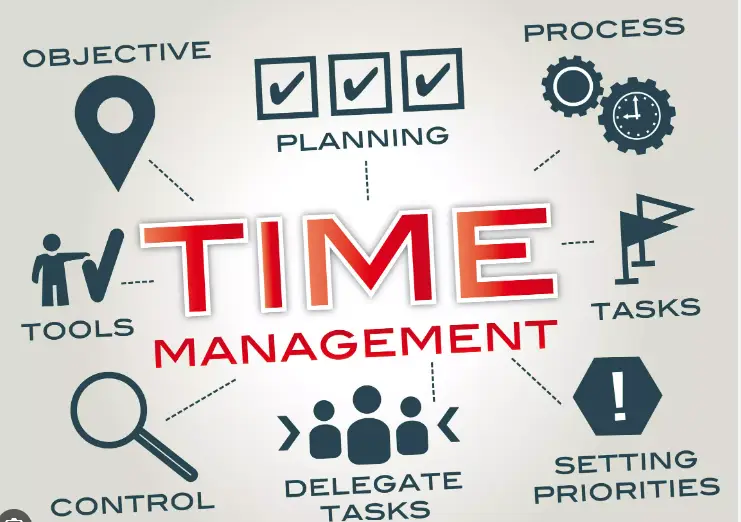How To Communicate Effectively As A Freelancer
Proven Strategies Freelancers Use To Communicate Effectively
In this post, I’ll focus on how to communicate effectively as a freelancer.
In the dynamic world of freelancing, mastering the art of communication is crucial for success.
As a freelancer, you are your own boss, manager, and marketer, and effective communication can make or break your career.
Whether you are negotiating contracts, managing client expectations, or collaborating on projects, knowing how to communicate effectively as a freelancer sets you apart from the competition.
Clear and concise communication helps in building strong relationships with clients, ensuring project requirements are understood, and delivering results that meet or exceed expectations.
How to communicate effectively as a freelancer involves more than just responding to emails promptly.
It encompasses understanding your clients’ needs, articulating your ideas clearly, and maintaining professional etiquette in all interactions.
Also, effective communication also means being an active listener, providing regular updates, and being transparent about your availability and project timelines.
As a freelancer, you need to adapt your communication style to different clients and scenarios, ensuring that you are always on the same page.
In this guide, we will explore various strategies and tips on how to communicate effectively as a freelancer.
By mastering these skills, you can enhance your professional relationships, increase client satisfaction, and ultimately, achieve greater success in your freelancing career.
Read on to discover how to communicate effectively as a freelancer and elevate your freelance business to new heights.

Sponsored Post
Learn the best ways to make extra income online
7 Tips on How To Communicate Effectively As A Freelancer
Set clear expectations
From the very beginning of your working relationship, make sure to clearly communicate your availability, deadlines, and rates. This will help avoid misunderstandings later on.
Setting clear expectations is important in any context, whether it’s in a personal or professional setting.
Here are some tips for setting clear expectations to communicate effectively as a freelancer
-
-
- Be specific: Clearly communicate what you expect from the other person. Use specific language and examples to make sure they understand what you mean.
- Be realistic: Make sure your expectations are realistic and achievable. Setting expectations that are too high or impossible to meet will only lead to frustration and disappointment.
- Be consistent: Make sure your expectations are consistent over time. If you change your expectations frequently, it can be confusing and frustrating for the other person.
- Be open to feedback: Encourage the other person to provide feedback on your expectations. This can help you refine your expectations and make sure they are reasonable.
- Be willing to adjust: If the other person is struggling to meet your expectations, be willing to adjust them if necessary. It’s important to be flexible and work together to find a solution that works for everyone.
-
Use professional language
Whether you’re communicating through email, text, or phone, make sure to use professional language and avoid slang or informal language.
Here are some tips for using professional language to communicate effectively as a freelancer
-
-
- Be clear and concise: Use language that is easy to understand and avoids jargon or technical terms that might be confusing to the person you are communicating with.
- Use proper grammar and spelling: Make sure your writing is free of errors and follows proper grammar rules.
- Avoid slang or informal language: When communicating in a professional setting, it’s important to use language that is appropriate and respectful.
- Be respectful: Always use language that is respectful and considerate of the other person’s feelings and opinions.
- Use appropriate tone: Choose a tone that is professional and respectful, whether you’re speaking or writing. Avoid using language that is confrontational or aggressive.
-

Be responsive to your clients
Clients appreciate timely responses to their messages and inquiries. Make sure to check your email regularly and respond promptly.
Being responsive to your clients is crucial for building and maintaining strong relationships.
Here are some tips for being responsive to your clients to communicate effectively as a freelancer
-
-
- Respond in a timely manner: Aim to respond to your clients’ inquiries or requests as quickly as possible. Even if you don’t have an immediate solution or answer, let them know that you are working on it.
- Communicate regularly: Keep your clients updated on the progress of their project or request, and let them know if there are any delays or changes in the timeline.
- Listen actively: When communicating with your clients, take the time to actively listen to their concerns and needs. This will help you understand their perspective and provide better solutions.
- Be proactive: Anticipate your clients’ needs and offer solutions before they ask. This shows that you are thinking about their business and are committed to helping them succeed.
- Provide excellent customer service. Go above and beyond to provide excellent customer service. Respond to feedback, address any issues promptly, and make sure your clients feel valued and appreciated.
-
Be clear and concise
Keep your messages short and to the point. Avoid rambling or using overly technical language that might confuse your clients.
Being clear and concise in your communication is important to ensure that your message is easily understood and avoids any confusion
Here are some tips for being clear and concise to communicate effectively as a freelancer
-
-
- Use simple language: Avoid using complex words or technical jargon that might be difficult for your audience to understand. Use simple language that everyone can comprehend.
- Get to the point: Be direct and get to the point quickly. Avoid unnecessary information or long introductions.
- Use short sentences: Short sentences are easier to understand and follow. Avoid using long, run-on sentences that can confuse your audience.
- Use bullet points or numbered lists: This can help organize information and make it easier to digest.
- Avoid ambiguity: Be specific and avoid using vague or ambiguous language that can be misinterpreted. Use concrete examples to illustrate your point.
- Check for comprehension: After delivering your message, check for comprehension by asking your audience if they understood everything or if they have any questions.
-
Listen actively to your clients’ needs
When communicating with clients, make sure to listen actively to their needs and concerns. This will help you understand their expectations and deliver better results.
Active listening is a crucial skill when it comes to understanding and meeting your clients’ needs.
Here are some tips for listening actively to your clients to communicate effectively as a freelancer
-
-
- Pay attention: Give your full attention to the person speaking. Avoid distractions and try to be fully present in the moment.
- Ask questions: Ask open-ended questions to clarify and understand the person’s needs. Paraphrase what they’ve said to make sure you understand correctly.
- Avoid interrupting: Let the person finish speaking before responding. Interrupting can be seen as disrespectful and may cause the person to shut down.
- Show empathy: Try to understand the person’s perspective and show empathy. This can help build trust and rapport.
- Take notes: Taking notes can help you remember important details and show the person that you’re actively listening.
- Summarize: At the end of the conversation, summarize what was discussed to make sure everyone is on the same page. This can also help clarify any misunderstandings.
-

Provide regular updates to your customers
Keep your clients in the loop by providing regular updates on your progress. This will help build trust and confidence in your work.
Regular updates are important to keep your customers informed and engaged.
Here are some tips for providing regular updates to your customers to communicate effectively as a freelancer
-
-
- Set expectations: Let your customers know what to expect in terms of updates. Determine the frequency and format of the updates and communicate this clearly to your customers.
- Be proactive: Don’t wait for your customers to ask for updates. Be proactive and provide updates even when there is no new information. This shows that you are engaged and committed to providing good service.
- Use a variety of channels: Consider using different channels to provide updates, such as email, phone, or social media. This allows your customers to choose the channel that works best for them.
- Be transparent: Be honest and transparent in your updates. If there are issues or delays, communicate this clearly and provide an explanation.
- Provide progress reports: Provide regular progress reports to show your customers the progress that has been made and what still needs to be done.
- Invite feedback: Encourage your customers to provide feedback on the updates you’re providing. This can help you improve the way you communicate and provide better service.
-
Address issues proactively
If there are any issues or concerns, address them proactively and offer solutions. This will demonstrate your commitment to your clients and your willingness to go the extra mile.
Addressing issues proactively is key to providing excellent customer service and maintaining strong relationships with your customers.
Here are some tips for addressing issues proactively
-
- Anticipate issues: Think ahead and anticipate any potential issues that might arise. This allows you to take action before the issue becomes a problem.
- Communicate proactively: Be transparent and communicate proactively with your customers about any issues that arise. Let them know what steps you’re taking to address the issue and how it will be resolved.
- Provide solutions: Offer solutions to the issue and explain how they will help resolve the problem. Be specific about what you can do to help.
- Take responsibility: Take responsibility for any issues that arise and apologize if necessary. This shows that you care about your customers and are committed to resolving the issue.
- Follow up: Follow up with your customers after the issue has been resolved to make sure they are satisfied with the solution. This also shows that you value their feedback and are committed to providing good service.
- Analyze and learn: Analyze the issue and learn from it. Use this as an opportunity to improve your processes and prevent similar issues from happening in the future.
Conclusion
Overall, effective communication is essential for freelancers to succeed. By following these tips, you can build strong relationships with clients, deliver high-quality work, and achieve success in your freelancing career.
Related Post
Freelance Skills To Learn To Increase Your Income
How to earn money as a freelancer without quitting your job
How To Earn Money As A Freelancer







